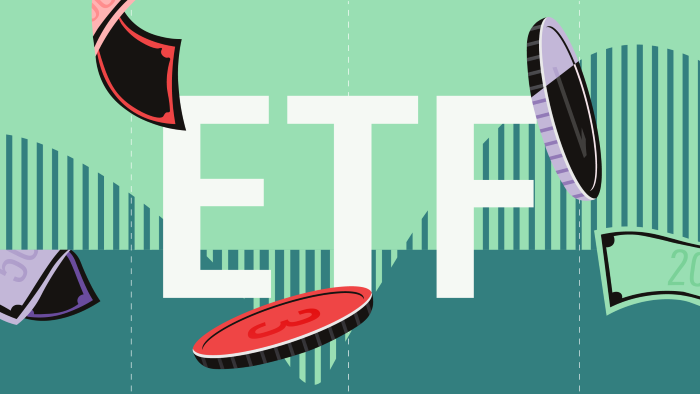
Thematic exchange-traded funds typically come with a good investment story, often seeking to capitalise on well-publicised long-term macro trends that transcend the business cycle. These include things like the increasing adoption of robotics and artificial intelligence, electric vehicles and genetic research, or demographic shifts.
But good stories are often the best thing these funds have going for them; they don’t necessarily make sound investments. Anyone considering investing in one should exercise caution and be sure to do their homework before buying.
What Can Go Wrong?
On the surface, some thematic ETFs may seem like great ideas. They attempt to capitalise on a seemingly inevitable long-term trend. It may seem plausible that stock prices don’t fully reflect those trends, given the widely held perception that the market is focused on the short term. But investors in these funds must get three bets right for these stories to translate into market-beating performance, and the odds of winning all three are low.
1. The macro trend must play out as expected.
2. Companies in the portfolio must benefit significantly from that trend.
3. Stock prices don’t fully reflect the impact of this expected growth.
The first bet is the easiest, and it’s where many investors stop their due diligence. Yet long-term trends don’t always play out as expected. For example, in the late 1990s, investors were enamored with Internet stocks, convinced they would fundamentally transform the economy and allow e-retailers to take market share away from brick-and-mortar stores. The story was right, but the timing was wrong. It took longer than many expected for that transition to happen, which prevented many from profiting from it.
It’s tempting to take for granted that the stocks in a thematic ETF are positioned to benefit significantly from the targeted theme. Yet it’s often challenging to craft a portfolio of companies that are pure plays on a given theme, particularly when that theme is still in its early stages.
An Example
Consider First Trust Indxx Innovative Transaction & Process ETF (LEGR), which targets firms that are developing or using blockchain technology. While many of its holdings are leaders in blockchain adoption, this technology isn’t a significant earnings driver for many of them, like AT&T (T), Microsoft (MSFT), Amazon.com (AMZN), and London Stock Exchange (LSE). As such, it may not have a significant impact on their stock prices. At the very least, this fund’s performance will be influenced by many things other than blockchain.
Even funds that target the same theme often have very different portfolios. For example, iShares Robotics and Artificial Intelligence ETF (IRBO), Global X Robotics & Artificial Intelligence ETF (BOTZ), and Robo Global Robotics & Automation ETF (ROBO) all target stocks that are likely to benefit from the growing adoption of robotics, automation, and AI. Yet there is little common ground among their portfolios, highlights the importance of looking beyond the fund name to what exactly is in it.
Has the Market Appropriately Priced the Trend?
Even if a trend plays out as expected and a fund is well-positioned to take advantage of it, that won’t necessarily translate into market-beating returns. The market may have already priced in that trend; if you know about it, the odds are so does everyone else. The key is to identify underappreciated trends, which is no easy feat.
The relationship between earnings growth and stock returns is tenuous at best, as faster-growing companies tend to trade at higher valuations, which offsets the benefit of that growth.
What matters is growth relative to the market’s expectations. It is difficult to forecast the impact of a trend on businesses more accurately than the market. Doing so requires more than just an understanding of the macro story, but also understanding what the market is currently pricing in and how the competitive landscape might evolve. That’s a tall order.
Most Thematic ETFs Fail
Given the difficulty of getting all three bets right, most thematic ETFs fail to beat the market. In fact, most don’t even survive over the long term. According to the Morningstar Global Thematic Funds Landscape report, published in February 2020, only 45% of all thematic funds listed at the end of 2009 survived until the end of 2019. Of the funds that survived, just 26% beat the MSCI World Index.
That means the odds of picking a winning thematic fund from the line-up that existed at the end of 2009 were just 11.7%.
Most investors would probably be better off skipping thematic ETFs altogether. Most also come with high active risk, narrow portfolios, and unintentional sector and style bets. That said, this active risk also creates considerable upside potential for those fortunate enough to find one of the few winners. If you find a thematic ETF appealing, it’s generally prudent to keep the position small and do your homework before buying.
Tips for Due Diligence
Examine the Theme: Is it durable and broad enough to adapt with changes to the market, but not so broad that it just repackages traditional industry exposures?
Consider the Risks: For example, it might take longer than anticipated for a new technology to be adopted, firms might have trouble profiting from the trend, competition may be fiercer than expected, , or regulators might step in and change the economics of the business.
Check the Portfolio: Look at the fund’s holdings, selection criteria and diversification. Are those stocks likely to significantly benefit from the targeted trend, or are unrelated factors likely to have a bigger impact on performance? Amazon, Spotify, and Netflix all use AI to enhance their customers’ experience, for example, but changes in consumers’ discretionary spending power will likely have a much bigger
Know when to Sell: Write down your investment thesis before you buy. If the theme doesn’t develop as expected, the fund doesn’t adequately profit from that theme, or if valuations rise significantly, it may be time to sell.
It’s challenging to find winning thematic funds, or even funds that will live up to their names. Proceed with caution.




















